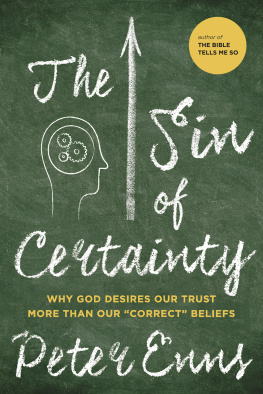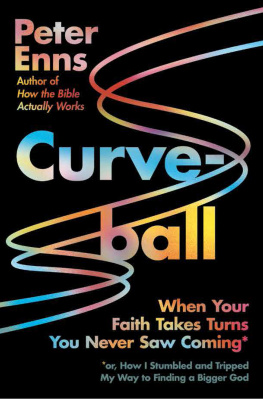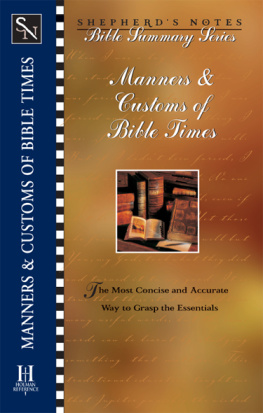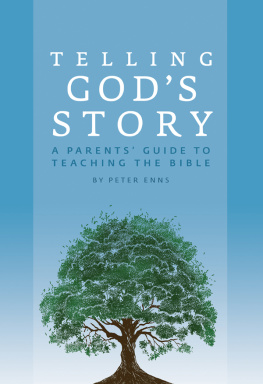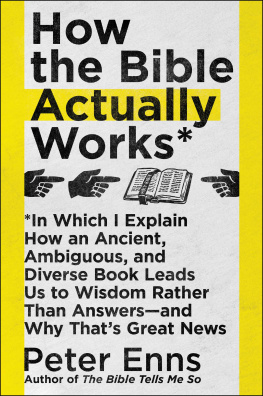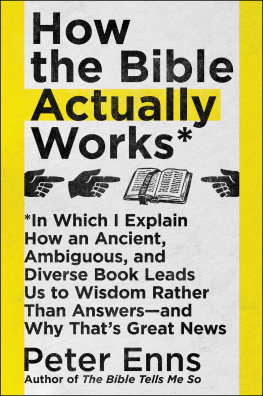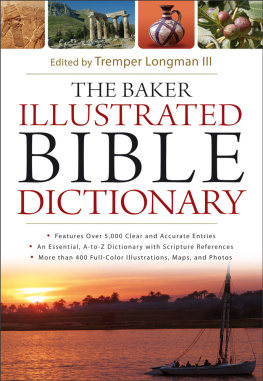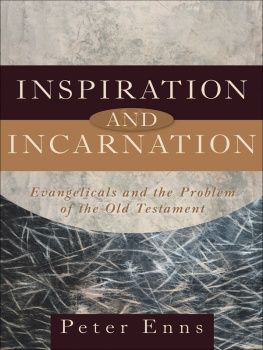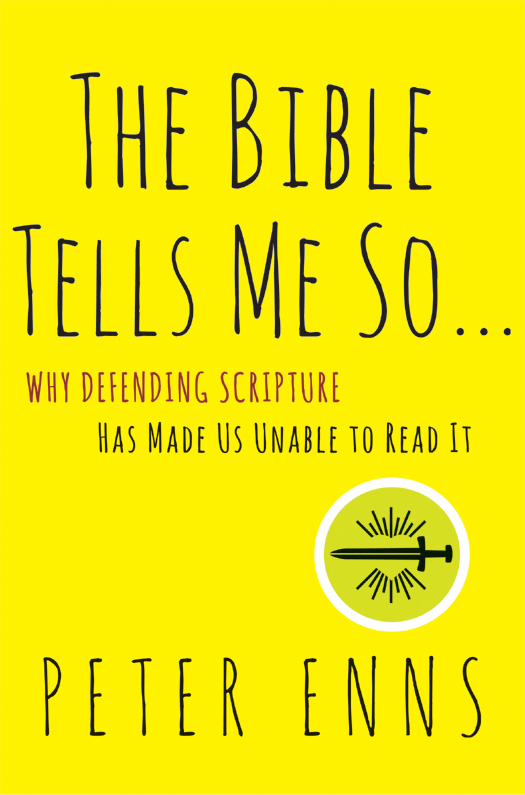The human qualities of the raw materials show through. Navety, error, contradiction, even (as in the cursing Psalms) wickedness are not removed. The total result is not the Word of God in the sense that every passage, in itself, gives impeccable science or history. It carries the Word of God; and we (under grace, with attention to tradition and to interpreters wiser than ourselves, and with the use of such intelligence and learning as we may have) receive that word from it not by using it as an encyclopedia or an encyclical but by steeping ourselves in its tone or temper and so learning its overall message.
We might have expected, we may think we should have preferred, an unrefracted light giving us ultimate truth in systematic formsomething we could have tabulated and memorized and relied on like the multiplication table.... But there is one argument which we should beware of using...:
God must have done what is best, this is best, therefore God has done this. For we are mortals and do not know what is best for us, and it is dangerous to prescribe what God must have doneespecially when we cannot, for the life of us, see that He has after all done it.
C. S. Lewis, Reflections on the Psalms
Contents
To seekers and pilgrims who need to think out loud,
others who would like to,
and those who value and support them.
And to my familyalready and not yet.
A WORD ABOUT how this book is laid out.
I refer to the Bible a lot, and almost all of the citations (chapter and verse) are collected toward the end of the book in an easy-to-use section, Where in the Bible Were We? (In Order of Appearance). I assume youre as distracted as I am when youre reading along in a book, having a good time, and you come across something like (Isaiah 58:910; Luke 4:10; John 12:13, 711, and 15) and you stop dead in your tracks, wondering Where did the words go? So I collected all that in the back of the book. Youll also find in that section a few references to other books and articles I used as sources.
Its hard to talk about the Bible without dates, so youll notice a few popping up here and there. Ive kept them to a minimum and collected them at the end of the book in a crisp and clear timeline, Some Dates I Keep Referring To (And a Few Others). Youll also find at the end a list of books that you might find helpful if you want to keep reading a bit (In Case You Dont Believe Me and Want to Read More).
The Bible translation I use throughout the book is the New Revised Standard Version. Just because. I like it.
THE BIBLE.
Its been around in one form or another for twenty-five hundred years or so, and, by anyones standards, its had quite a run.
From its murky beginnings as ancient stories and poems written by obscure peoples living along the eastern Mediterranean coast in a plot of land the size of New Jersey, it became a worldwide sacred and revered text, the Holy Bible, the Word of God, read in hundreds of languages and dialects, the number one bestselling book of all time, with billions of copies sold and a hundred million more sold each year.
The Bible isnt going anywhere. Christians have been reading it ever since there have been Christians. It remains the main way for Christians today to learn about God, the go-to sourcebook for spiritual comfort, guidance, and insight.
Count me among them. I am a Christian, and the Bible has shaped and continues to shape my life and my faith. I love the Bible, because I meet God in its pages. I teach the Bible because I want to help others meet God, too.
So whats the problem?
Many Christians have been taught that the Bible is Truth downloaded from heaven, Gods rulebook, a heavenly instructional manualfollow the directions and out pops a true believer; deviate from the script and God will come crashing down on you with full force.
If anyone challenges this view, the faithful are taught to defend the Bible against these anti-God attacks. Problem solved.
That is, until you actually read the Bible. Then you see that this rulebook view of the Bible is like a knockoff Chanel handbagfine as long as its kept at a distance, away from curious and probing eyes.
What I discovered, and what I want to pass along to you in this book, is that this view of the Bible does not come from the Bible but from an anxiety over protecting the Bible and so regulating the faith of those who read it.
Why do I say this? The Bible tells me so.
I will tell you my story soon, but in sum I would say this: When you read the Bible on its own terms, you discover that it doesnt behave itself like a holy rulebook should. It is definitely inspiring and upliftingit wouldnt have the shelf life it does otherwise. But just as often its a challenging book that leaves you with more questions than answers.
For one thing, you dont have to go beyond the first two books of the Bible, Genesis and Exodus, to find stories that are hard to take at face value and read more like scripts for a fairy tale.
Adam and Eve, the two first humans, live in a garden paradise with not one but two magical trees, and lurking nearby is a talking serpent with an ax to grind. God shows up on a semiregular basis and chats with humansas if, what could be more normal? A sea parts down the middle so Israelite slaves can escape Egypt on dry land. Fire comes out of the sky. God slays sea monsters.
Christians know deep down that these stories, as part of the Holy Bible, need to be taken seriously. But still. If we read these sorts of episodes outside of the Bible, from another ancient culture, we wouldnt blink an eye. Wed know right away we were dealing with the kinds of stories people wrote long ago and far away, not things that happened, and certainly nothing to invest too much of ourselves in.
Yet this stuff is in the Bible, the Holy Bible, the book that we are told gives the faithful sure spiritual guidance and relays absolutely reliable information about God. Its not supposed to feel like Norse sagas or the SyFy Channel.
So what are we supposed to do with a Bible like this?
Another challenging part for Christian readers who see the Bible as an unerring rulebook is the many laws God gave the Israelites on Mount Sinai (with Moses as the go-between). These laws are at the heart and center of Israels story, the Old Testament, which makes up three-fourths of the Christian Bible.
But for Christians many of these laws are completely out of touch with their day-to-day spiritual reality, and its hard to know whether we should take them seriously or move along without making eye contact.
Animals are sacrificed on a regular basis to appease God, with very specific instructions given by God about what kind of animals and when to sacrifice them to keep him calm. Other laws are just plain weird. Wet dreams, contact with mold and bodily discharges, and eating pork, dolphin, and lobster make you unclean, an ancient notion about being unfit to be in the company of God and fellow Israelites. The blind, disfigured, hunchbacked, dwarfed, and those with crushed testicles (I suppose it could happen) are barred from the priesthood. Strictly speaking, the Americans with Disabilities Act is unbiblical.
Theres a reason pastors sermons and Bible study groups dont spend a lot of time in these sections: its hard to know what to do with all this, and there doesnt seem to be a lot of payoff in investing the effort to try.
Other parts of the Bible are shocking to read, even barbaric, and hard to defend as the Word of God in civil adult conversation. God either orders a lot of killing or does it himselfand even comes across as a bit touchy. You only have to get to the sixth chapter of the Bible to see God drown all but two of every living creature on earth in a forty-day tsunami because humanity was wicked and evil (except for Noah). Later God drowned (what is it with water?) the entire Egyptian army in the Red Sea after the Israelites passed through safely.

